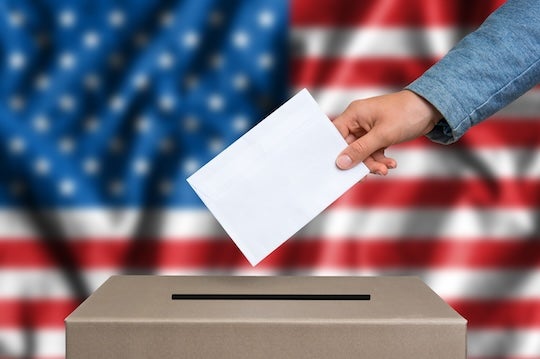HOUSTON – (Feb. 6, 2024) – As U.S. democratic principles are being tested, The Carter Center and Rice University’s Baker Institute for Public Policy have proposed guiding principles to ensure that elections are conducted in ways that give Americans greater confidence in their outcomes.
“Too often, elections processes are used in ways intended to give political advantage to one side or the other,” said David Carroll, director of the Democracy Program at The Carter Center. “And, too many political and elected leaders obfuscate and peddle fear about the mechanics of elections, the laws governing them, and the process leading to election results, in order to motivate votes for their side.”
Such political gamesmanship has resulted in a greater lack of confidence in election outcomes, said John Williams, co-director of the Baker Institute’s Presidential Elections Program.
“The guiding principles offered in the report are designed to instill confidence among people on both sides of the political aisle,” Williams said. “If we can agree on such principles, then perhaps policymakers can develop laws and regulations that govern elections in sensible and pragmatic ways.”

When former President Jimmy Carter and former Secretary of State James A. Baker III chaired the bipartisan Commission on Federal Election Reform in 2005, both worried that democracy could face dangers if the elections are perceived as defective. “Elections are the heart of democracy,” Carter and Baker wrote in the introductory letter to their final report.
Since 2020, The Carter Center and Baker Institute have established a collaboration to continue studying election issues.
Americans use the election system — specifically, their ballots — to communicate their ideas, priorities and values. Elections allow Americans to combine with other voters to make concrete choices for the future of their nation, states and local communities. However, unlike most countries around the world which have uniform voting rules and procedures, the U.S. system is widely decentralized.
The Carter Center and Baker Institute identified 10 guiding principles that are crucial to a healthy election system everywhere — even as individual policies and procedures continue to vary from community to community. The goal is to provide a framework on a national level for bipartisan and effective policies that balance what is required for Americans to have faith in their elections and the twin needs for equitable access and integrity of the results.
- America’s election system — and the democracy it supports — must be a national priority.
- Election laws and policies should be clear, transparent and well-communicated to the public.
- Voter registration should be widely available, easily accomplished, secure and well-run.
- Voting — specifically, the act of receiving and casting a ballot — should be flexible enough to meet voters’ needs equitably, especially between rural and urban populations.
- Voting technology should be a gateway, not a barrier, to the voting process.
- States and localities should prioritize policies that allow ballots to be cast and counted on or before Election Day so that the final count can be completed as soon as possible after the close of polls.
- Military and overseas voters should continue to have the opportunity to cast timely and valid ballots.
- Tabulation of election returns should be transparent — and proceed in an orderly fashion.
- Jurisdictions should commit to regular and rigorous audits of the election process.
- The U.S. should embrace recognized standards and best practices for election observation.
Learn more about the recommendations here.

